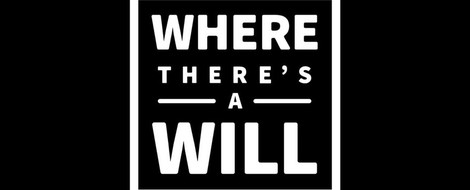Your podcast discovery platform
Curious minds select the most fascinating podcasts from around the world. Discover hand-piqd audio recommendations on your favorite topics.

piqer for: piqd Boom and bust Climate and Environment Global finds Globalization and politics Health and Sanity Technology and society Doing Good Deep Dives
Malia Politzer is the executive editor of piqd.com, and an award-winning long-form journalist based out of Spain. She specializes in reporting on migration, international development, human rights issues and investigative reporting.
Originally from California, she's lived in China, Spain, Mexico and India, and reported from various countries in Africa, Europe and the Middle East. Her primary beats relate to immigration, economics and international development. She has published articles in Huffington Post Highline, The Economist, The Wall Street Journal, Vogue India, Mint, Far Eastern Economic Review, Foreign Policy, Reason Magazine, and the Phoenix New Times. She is also a regular contributor to Devex.
Her Huffington Post Highline series, "The 21st Century Gold Rush" won awards from the National Association of Magazine Editors, Overseas Press Club, and American Society of Newspaper Editors. She's also won multiple awards for feature writing in India and the United States.
Her reporting has been supported by the Pulitzer Center on Crisis Reporting, The Institute For Current World Affairs, and the Global Migration Grant.
Degrees include a BA from Hampshire College and MS from Columbia University Graduate School of Journalism, where was a Stabile Fellow at the Center for Investigative Journalism.
Where There's A Will: A Podcast About Ireland's Dysfunctional Mental Health System
This 6-part podcast series does a deep-dive into the state of Ireland's dysfunctional mental health system, and investigates how and why it's falling short of helping those struggling with mental health challenges, who desperately need it.
The first episode, "The Hardest Thing To Do" starts off the podcast by looking at how hard taking that first step—realizing that something is wrong, and asking for help—can be for people struggling with depression and anxiety.
We meet Victoria, a psychology graduate, who has had several depressive episodes—and, after finally mustering up the courage to see a doctor to ask for help, was given a prescription for anti-depressants, but no recommendations for therapy or follow up. And we meet James, a Dublin-based man, who was unable to even contemplate asking for help until he realized that suicide had become a very real option. For both of them, that initial step of asking for help was a monumental task—and neither felt that they received the care that they so desperately needed.
Next, we hear from a general practitioner who is usually the first person to receive these calls, who gives more insight into where the system is falling short: As it stands, Ireland's current mental health system simply doesn't have an infrastructure or referral system staffed with sufficient qualified personnel to respond to these crises with the haste or sensitivity that people suffering from anxiety or depression need. She outlines where she believes things are falling short, and what she thinks can be done to improve the system
While the podcast series is definitely geared towards an Irish audience, I believe that it tells a universal story, which is why I'm recommending it. In most of the world, national health systems lack the institutional resources to address mental health needs. This series, while pointing out the challenges, is also solutions-focused: Its goal is to see how the system can be improved—and in that search holds a lesson for us all.
